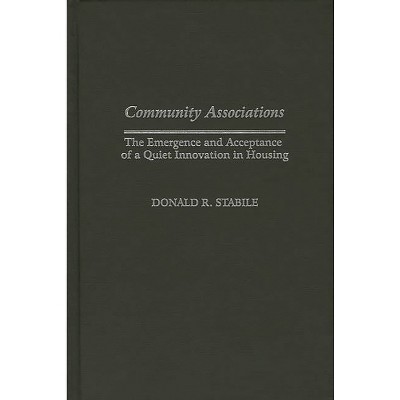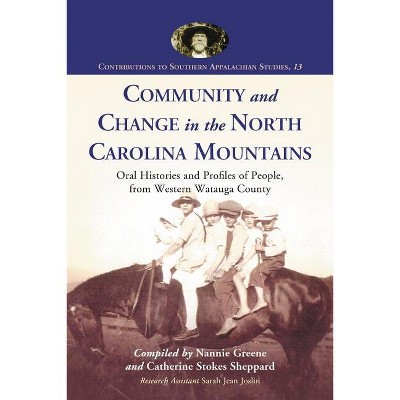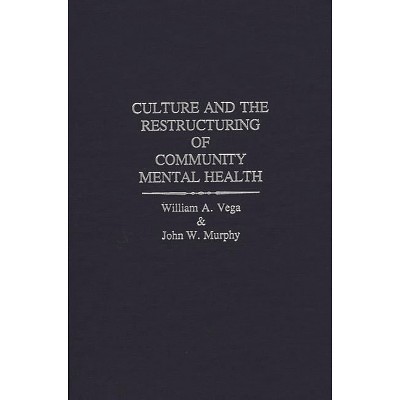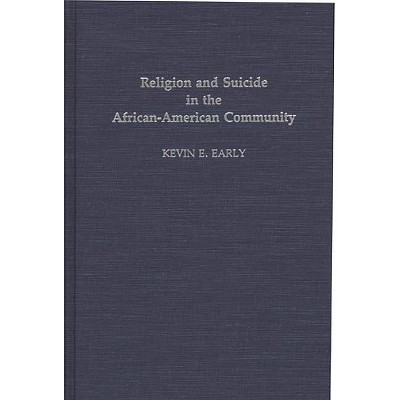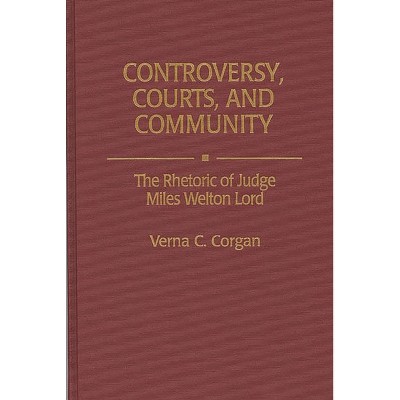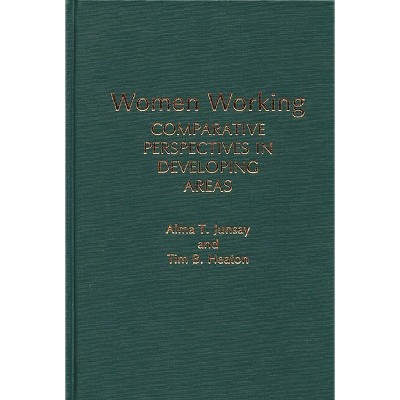Sponsored

Women, Community, and the Hormel Strike of 1985-86 - (Contributions in Women's Studies) by Neala Schleuning (Hardcover)
In Stock
Sponsored
About this item
Highlights
- The strike by Local P-9 against the Hormel Co. in 1985-86 marked a turning point in American labor history.
- About the Author: NEALA J. SCHLEUNING is a member of the National Coalition of Independent Scholars.
- 256 Pages
- Political Science, Labor & Industrial Relations
- Series Name: Contributions in Women's Studies
Description
About the Book
The strike by Local P-9 against the Hormel Co. in 1985-86 marked a turning point in American labor history. The central role played in the strike by the Austin United Support Group brought the issues of economic justice and community survival to the forefront of the labor movement agenda. In response to isolation from their traditional communities, these women created a vital and successful strike culture that was characterized by cooperation, solidarity, and a variety of institutions to meet the economic, social, and spiritual needs of the 1,500 striking families. This work is important because it shows the strength of the women and their vision of economic justice, how deeply committed they remain to their ideals and their struggle, and how little the passage of time has diminished their anguish. This work is important also as a portrait of a typical midwestern company town where community life is colored strongly by economics.
Book Synopsis
The strike by Local P-9 against the Hormel Co. in 1985-86 marked a turning point in American labor history. The central role played in the strike by the Austin United Support Group brought the issues of economic justice and community survival to the forefront of the labor movement agenda. In response to isolation from their traditional communities, these women created a vital and successful strike culture that was characterized by cooperation, solidarity, and a variety of institutions to meet the economic, social, and spiritual needs of the 1,500 striking families. This work is important because it shows the strength of the women and their vision of economic justice, how deeply committed they remain to their ideals and their struggle, and how little the passage of time has diminished their anguish. This work is important also as a portrait of a typical midwestern company town where community life is colored strongly by economics.Review Quotes
.,."The author does a very good job of conveying the day-to-day realities of living through a lengthy and bitter strike that caused an entire town to choose up sides, left some long-term economic and emotional scars, and resulted in most of the strikers losing their jobs. This book will appeal to sociologists and industrial relations experts interested in the community impact of workplace turmoil. Advanced undergraduate through faculty."-Choice
"This book is a must of for all those interested in labor problems today and/or involved in the labor education field. It documents the extreme emotional conditions that can arise when a group of people are caught in possibly the worst labor relations situation imaginable: opposition not only towards the employer, but also towards the international union itself......[the author] has skillfully blended the interviews together to provide an interesting picture of what the strike meant to those who participated. Even though the action itself has had the unfortunate effect of dividing a town for a generation, and even though most of the strikers lost their jobs permanently, it can serve as an indication both for organized labor and big business that the spirit necessary to sustain a labor movement is still alive and well."-Labor Studies Journal
?...The author does a very good job of conveying the day-to-day realities of living through a lengthy and bitter strike that caused an entire town to choose up sides, left some long-term economic and emotional scars, and resulted in most of the strikers losing their jobs. This book will appeal to sociologists and industrial relations experts interested in the community impact of workplace turmoil. Advanced undergraduate through faculty.?-Choice
?Schleuning's admirable work with some of the women of the Support Group should serve in the future as a source of primary importance for others writing about the Hormel workers and their 1986 strike.?-Labor History
?Schleuning's portrayal of this bitter chapter in U.S. labor history is dramatic. The story of the strike unfolds in ways that allow the reader to literally fell the tensions gripping this small community as factions and internal divisions separate former friends, neighbors, fellow church members, and those with different economic interests in the strike. Schleuning successfully situates this strike not as an isolated event affecting a small midwestern community but as a scenario being replayed in many communities whose economic well-being is being underminded by the global economic restructuring that means lost jobs and/or wage and benefit reductions for workers.?-Signs
?This book is a must of for all those interested in labor problems today and/or involved in the labor education field. It documents the extreme emotional conditions that can arise when a group of people are caught in possibly the worst labor relations situation imaginable: opposition not only towards the employer, but also towards the international union itself......[the author] has skillfully blended the interviews together to provide an interesting picture of what the strike meant to those who participated. Even though the action itself has had the unfortunate effect of dividing a town for a generation, and even though most of the strikers lost their jobs permanently, it can serve as an indication both for organized labor and big business that the spirit necessary to sustain a labor movement is still alive and well.?-Labor Studies Journal
..."The author does a very good job of conveying the day-to-day realities of living through a lengthy and bitter strike that caused an entire town to choose up sides, left some long-term economic and emotional scars, and resulted in most of the strikers losing their jobs. This book will appeal to sociologists and industrial relations experts interested in the community impact of workplace turmoil. Advanced undergraduate through faculty."-Choice
"Schleuning's admirable work with some of the women of the Support Group should serve in the future as a source of primary importance for others writing about the Hormel workers and their 1986 strike."-Labor History
"Schleuning's portrayal of this bitter chapter in U.S. labor history is dramatic. The story of the strike unfolds in ways that allow the reader to literally fell the tensions gripping this small community as factions and internal divisions separate former friends, neighbors, fellow church members, and those with different economic interests in the strike. Schleuning successfully situates this strike not as an isolated event affecting a small midwestern community but as a scenario being replayed in many communities whose economic well-being is being underminded by the global economic restructuring that means lost jobs and/or wage and benefit reductions for workers."-Signs
About the Author
NEALA J. SCHLEUNING is a member of the National Coalition of Independent Scholars. She is the author of Idle Hands and Empty Hearts: Work and Freedom in the United States (Bergin & Garvey, 1990).





